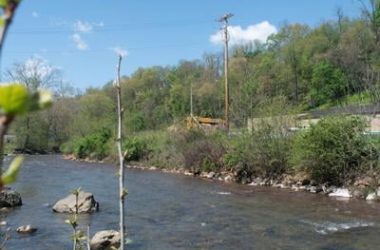From The Herald-Dispatch of Huntington:
The findings of a study done at the behest of a West Virginia state agency and its two largest universities spell out what officials describe as a path forward to diversify and grow the state’s economy, but amid the opportunities spelled out in the report are also significant challenges.
Neither the listed opportunities nor the challenges were necessarily new, at least in broad strokes, but what could be cause for optimism is that the partners in this initiative recognize the hard work ahead. And they say they are committed to doing that work.
The presentation last week at the state Capitol was called “West Virginia Forward: Maximizing our Opportunities for Prosperity.” The initiative is a collaboration involving the state’s Department of Commerce and West Virginia University and Marshall University, with a private consulting firm, McKinsey and Co. authoring the report. It was paid for with private donations. WVU President Gordon Gee and Marshall President Jerome A. Gilbert, who both have said their respective universities should take leading roles in developing solutions to the state’s myriad problems, were among the presenters.
In terms of industries that could be a focus for economic development efforts, the study identified “higher-end tourism”; the manufacture of carbon fiber reinforced plastic used in the aerospace, automotive, civil engineering, sports goods and other products; the production of fine chemicals; and high technology fields such as cybersecurity.
The study also touted the state’s assets, such as relatively low employee turnover, lower labor costs, lower than average cost of living and cost of doing business, and a business tax climate that ranks better than those of neighboring states. It also touched upon the state’s weaknesses, including poor infrastructure of various kinds (roads, bridges, lack of broadband internet), lower than average education levels, and a lack of land ready for business development.
It’s evident from those two lists that gaps exist. For example, low education levels and poor or non-existent broadband internet capabilities could make it difficult to attract high-technology businesses.
That’s where the hard work comes in. If West Virginia is to make significant strides in developing its economy, it must tackle such longstanding issues as education and the lack of broadband and ready-to-build industrial sites. Gee, speaking at the press conference last week, said state officials and residents need to be optimistic about the future, but more than a positive outlook will be required. “What we now have to do is, we have to not talk about a bright future but about the hard work that will make that future bright and give people hope,” he said.
Toward that end, WVU, MU and the Department of Commerce intend to develop and sign a memorandum of understanding committing each to begin tackling the initiatives spelled out in the study. They already have formed implementation groups for key sectors and plan to enlist a wide-ranging group of organizations and individuals to work on the specific goals, as well as seek the help of communities throughout the state.
Also on the to-do list is establishing a structure of accountability for the work that needs to be done – an important step if this initiative is to go further than similar endeavors taken on by others in the past.
As Gee noted, the state is in the midst of an economic crisis; urgent action is indeed needed.





